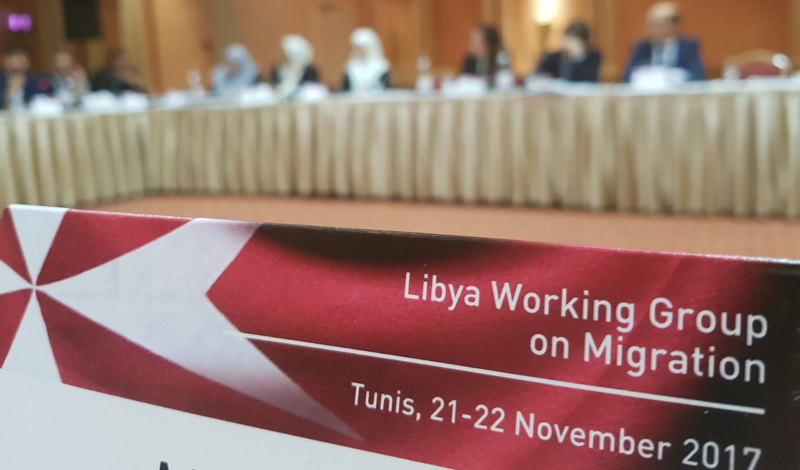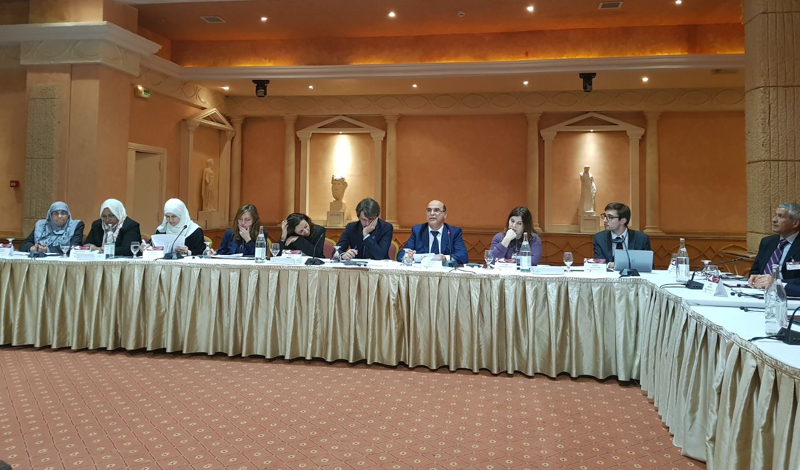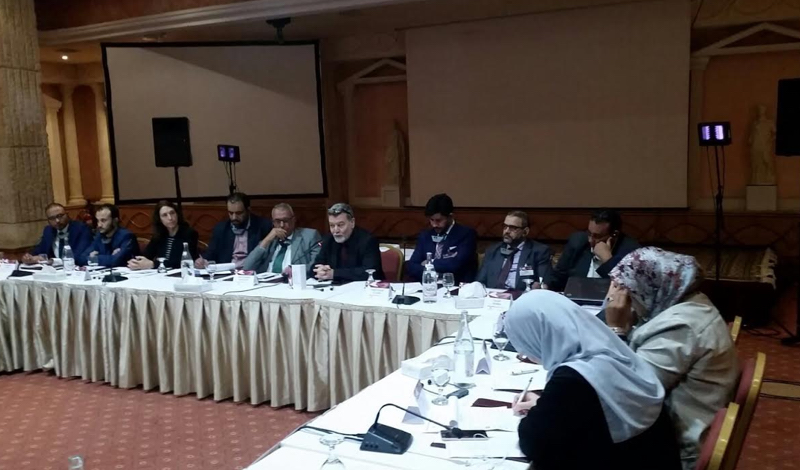The 4th meeting of the Libyan working group organized by the Order of Malta and Forward Thinking took place in Tunis
Similarly, to the former meetings- held in Rome in 2015, in 2016 and earlier this year – the meeting in Tunis focused on looking at the key challenges the country is facing from a Libyan perspective. Irregular migration, political instability, violation of human rights and the conditions in the detention centers, were extensively discussed. An ever-increasing corruption, the flourishing human trafficking and goods’ smuggling businesses, the training of local authorities, cooperation with the Southern bordering countries, and the spreading of epidemics due to the bad hygiene conditions in many parts of the country were all topics raised by participants.
Representatives of the Libyan institutions, such as the High State Council and the Ministry of Foreign Affairs, regional actors such as the Arab Maghreb Union, and of international organizations – the International Organization for migration (IOM), the UN mission in Libya (UNSMIL), the Humanitarian Affairs UN office, and of the European Union, together with academics and law experts, all participated in a frank and comprehensive debate on the main challenges the country is facing.
Ambassadors from some European countries such as Italy and Finland also gave their contribution to the two-day long discussion.
“It is very clear from our talks that there can be no solution without a political and multilateral shared approach. Nonetheless, there are some pressing humanitarian needs we need to urgently address. The international community must keep the focus on the target of the humanitarian assistance, the migrants and refugees detained on unclear legal grounds, but also on the hosting community which is in dire need of assistance” said the Grand Chancellor of the Order of Malta Albrecht Boeselager.
The fragmentation of the country was also addressed by participants with representatives from the South region Fezzan pointing to the frequent abuses committed by local illegal militias and in general to the security issue.
Unanimous was the Libyan demand for an urgent action leading to shared economic and political solutions endorsed by the international community that can take the country out of the deadlock which is gradually weakening its population and infrastructures. Based on the contributions emerging from the meeting in Tunis, some proposals to stir the dialogue into shared action points to tackle the crisis will be elaborated.












